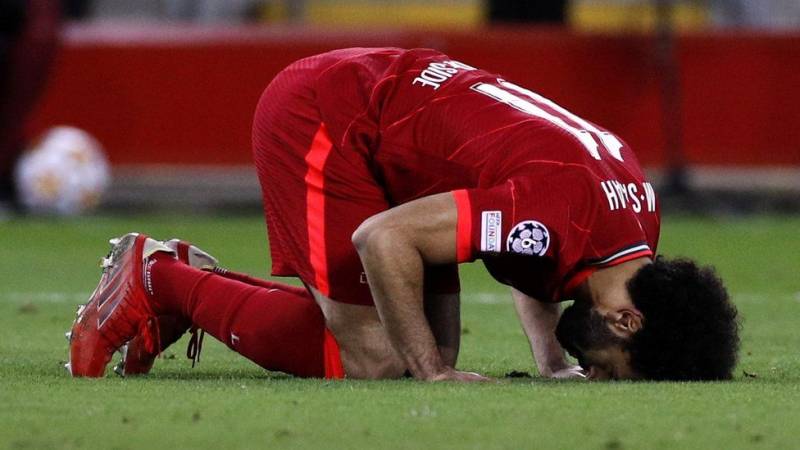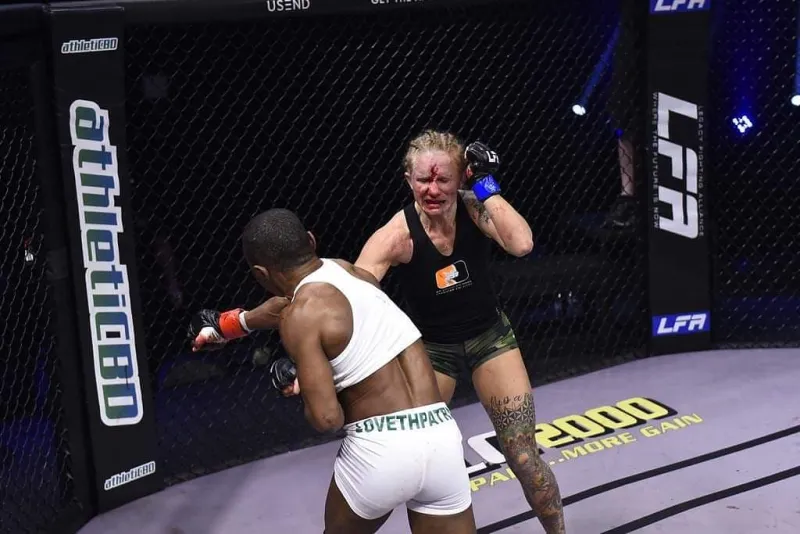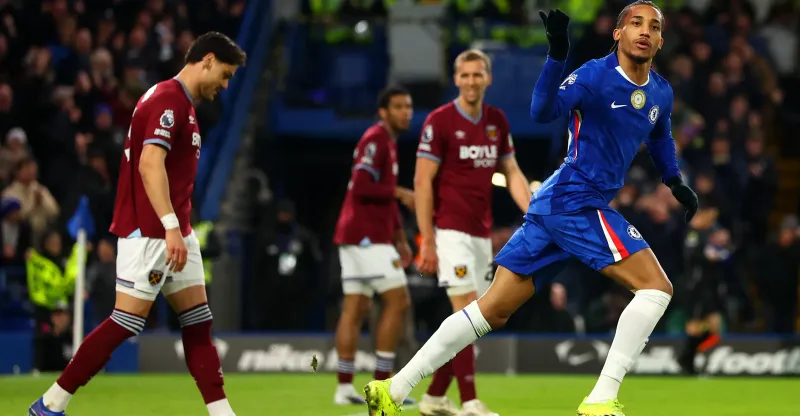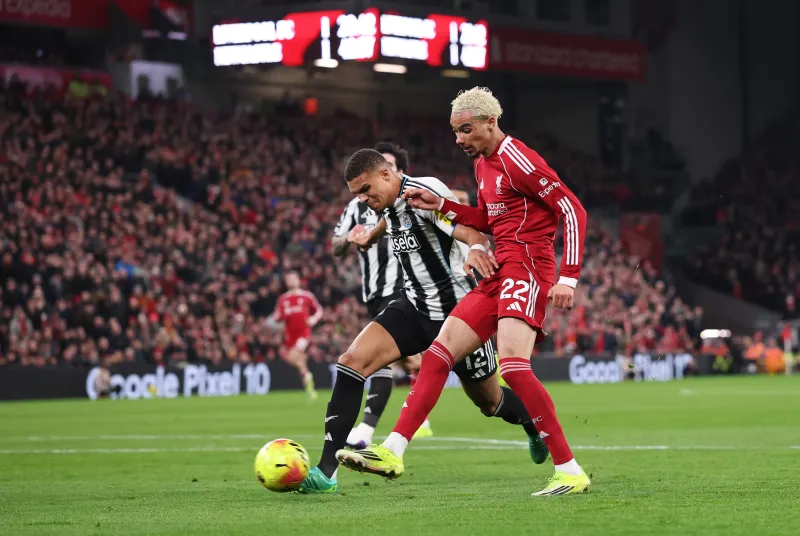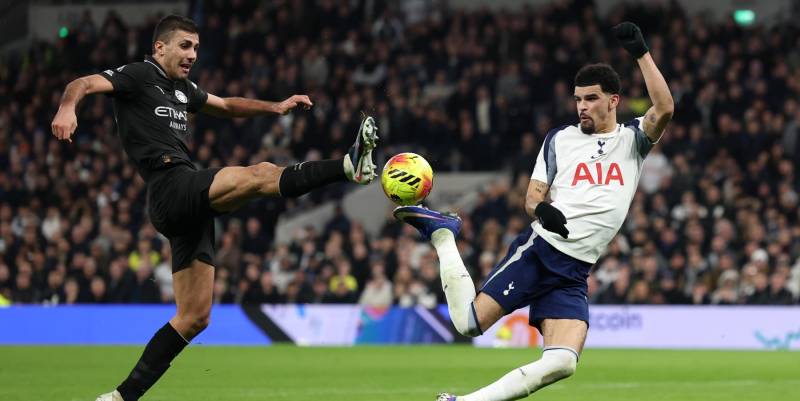Ask any Liverpool fan what they think of Mohamed Salah's new contract and you will get a mixture of relief and joy that he will be "running down the wing" for another three years.
In his first season after moving from Italian club Roma in 2017, the "Egyptian King" was the Premier League's top scorer, and he then went on to help the club become European and English champions.
But he's won as many - if not more - plaudits for his persona and conduct off the pitch, helping to change perceptions of elite footballers and break cultural boundaries.
His charitable contributions - to education, healthcare and animal rights projects - have won praise and prompted a former football communications officer to remark that he has "never forgotten his roots".
But it was his act of prostrating in prayer after goals that reverberated in the wider global consciousness, even among those who don't follow football.
Media caption,
Mohamed Salah inspires 'I'll be Muslim too' chant
In 2015, two Liverpool fans performing the ritual Islamic prayer at Anfield were described as a "disgrace" by one Twitter user, who received widespread criticism for his comment.
Dr Solava Ibrahim, an Egyptian-British lecturer in international politics at Anglia Ruskin University, describes the then "dominant discourse" about Muslims as "being violent or constantly linked to terrorist attacks or debates around women's subjugation".
So as a long-time Liverpool supporter, she says it was "a huge wow moment" when fans started singing that Salah was "a gift from Allah" and that "if he scores another few, then I'll be Muslim too".
"It was showing not just acceptance but his position as a role model - not just for Arabs, Middle East and Africa but also for UK youngsters," she adds.
Najib Al-Hakimi, who works as a co-ordinator at the Liverpool Arabic Centre said he was "thrilled" by the song, "because people were looking at Muslims as if they were ignorant and terrorists".
"But by his actions, he was able to change that," he adds.
He has since noticed more members of the local Arab community going to Anfield in recent years, adding: "Most of the youth are wearing his shirt and they'll talk about him, how good he is."
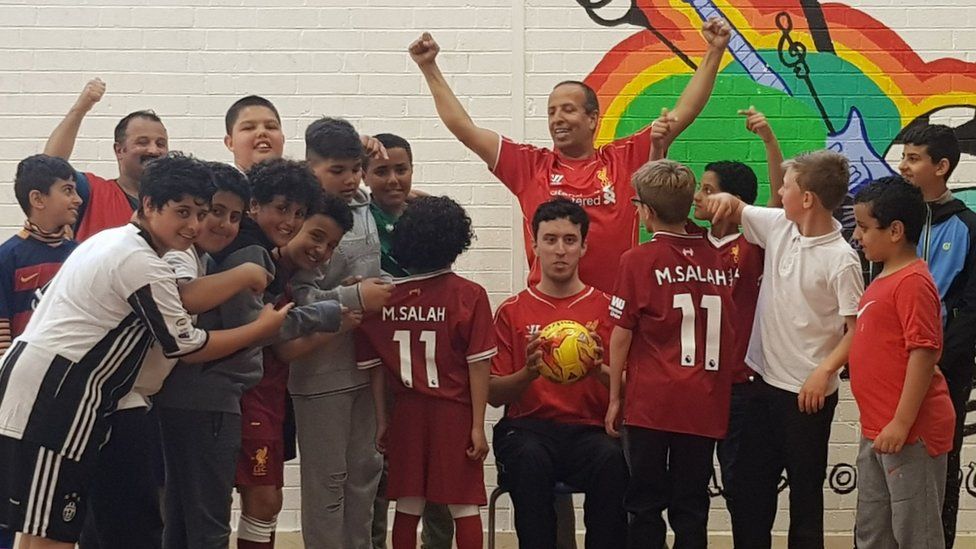
IMAGE SOURCE,LIVERPOOL ARABIC CENTRE
Image caption,
Liverpool Arabic Centre say they are proud of the "Egyptian King"
Liverpool fan Neil Atkinson, who writes for The Anfield Wrap, has also noticed that "there's definitely been an element of shifting" across Merseyside.
"If people feel that the Muslim faith is other, Salah's actions are significant," he says.
"After he prays on the pitch, I love that he'll turn to celebrate with the crowd and he's also celebrating himself, which are good things."
Liverpool manager Jurgen Klopp has previously spoken about how the team incorporate time for Salah to perform religious rituals as part of match preparations.
Club captain Jordan Henderson has also said the team opts for non-alcoholic champagne at trophy presentations, adding: "Within the dressing rooms there's none of that [intolerance] so why isn't that the case in the outside world?"
Mr Atkinson believes the wider city of Liverpool "sees itself as quite different to the rest of England because it's a port… it wants to be more outward-looking".
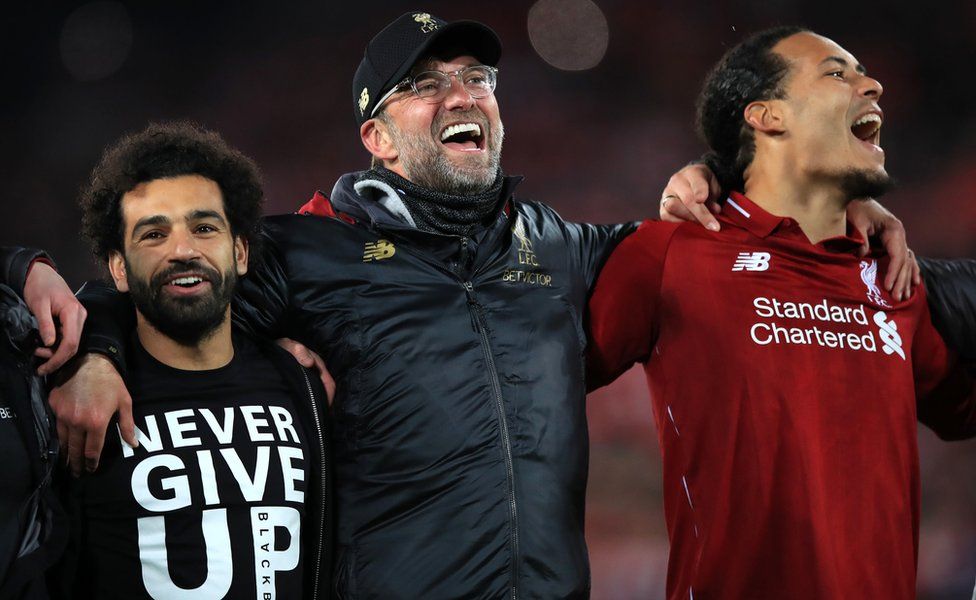
IMAGE SOURCE,PA MEDIA
Image caption,
Jurgen Klopp has rated Salah as "the best player in the world"
Salah also gets a hero's reception when he is spotted out and about around Liverpool.
One young boy famously faced the force of his - literally - unswerving devotion when he ran into a lamppost while chasing Salah's car in 2019.
Louis Fowler bust his nose but was said to be "made up" when the player turned back to check on him.
Dr Ibrahim says the incident demonstrates Salah's "human touch and accessibility".
"He is much more famous than a lot of Nobel Prize winners but he's not seen as someone up in the clouds or in the elite classes, I think that's part of why his messages get through," she says.
- Mohamed Salah honoured with waxwork doppelganger
- Is Salah helping Muslim fans engage with football?
- 'Mo Salah is so important to Muslim children like mine'
Salah has previously spoken about how women "deserve more than what [society] give her now" and has since appeared in a Women's Day promotional video with his eldest daughter Makka, while also asking his wife Magi to accept the Golden Foot award on his behalf last year.
"You need to see the message," says Dr Ibrahim.
"It's not just rhetoric and action - and that's the power. It's subtle and real."
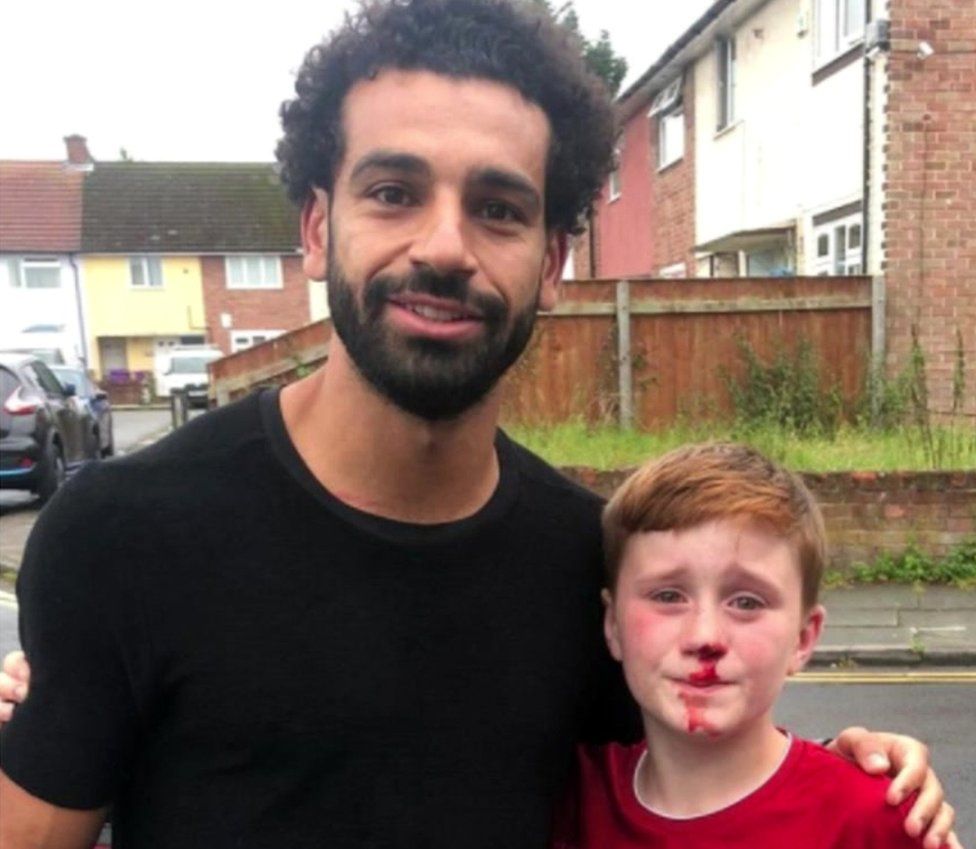
IMAGE SOURCE,@LOUISFOW007
Louis Fowler had his picture taken with his hero before his family could clean him up
In one of many academic studies of what's now known as the "Salah effect", a number of Brits shared their views about how he had "opened people up to thinking about Islam in a different way".
Prof Grant Jarvie, who co-authored the research for the University of Edinburgh, said: "We were surprised - not so much about the impact of Mohamed Salah - but with these sort of studies, you normally get a mix of criticism and good things. But generally speaking, people were positive about Salah on and off the field."
He says the striker demonstrates "soft power potential", adding that "sport can be a good enabler of cultural relations".
The player's impact in reducing Islamophobia - particularly in a city with Britain's oldest mosque - has been described as "phenomenal" by Liverpool City Region Mayor Steve Rotheram, while Time magazine named Salah among the world's 100 most influential people in 2019.
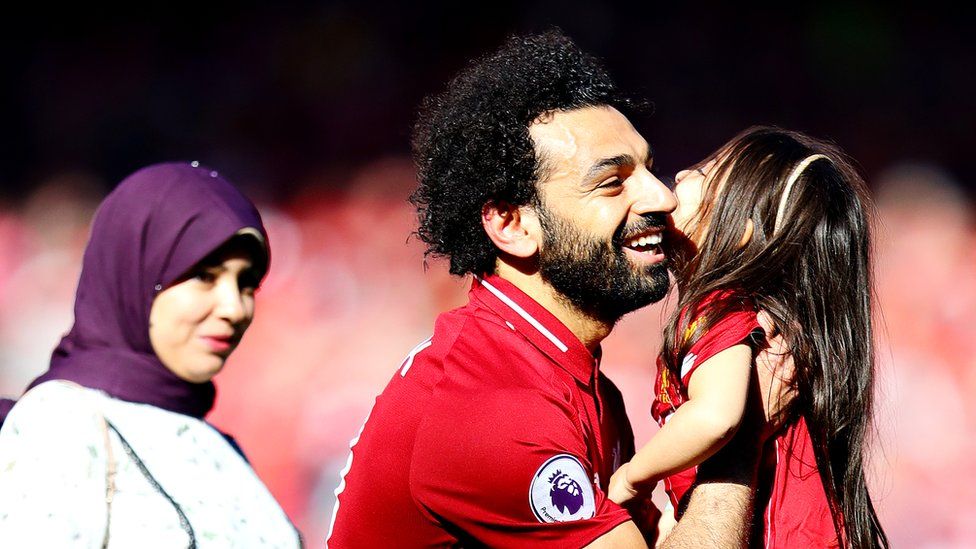
IMAGE SOURCE,GETTY IMAGES
I
Salah was joined by his wife and their eldest daughter during Anfield celebrations in 2019
It's not been all goals and glory though.
Salah divided public opinion during the 2019 Africa Cup of Nations after suggesting an Egyptian team-mate who apologised for committing sexual harassment should be given a "second chance".
Merseyside Police also had to remind him not to use a mobile phone while driving after he was filmed using a device in a car, which was surrounded by fans.
However, Salah's reputation remains relatively untarnished and with that comes a boost for Liverpool as a city.
While the region played a key role during the British Empire and later in culture and sport, its landmarks are becoming an increasingly familiar backdrop for adverts by Salah's international sponsors.
In echoes of The Beatles film A Hard Day's Night, a recent one shows him being chased by fans in a Pepsi commercial for Middle Eastern audiences.
Mr Atkinson says Salah's contract extension enables the striker to thrive in "that reflected glory of being Muslim, Arab, Egyptian, all the different parts of his identity - it makes everything brilliant for himself and Liverpool".
By Rumeana Jahangir
BBC News
